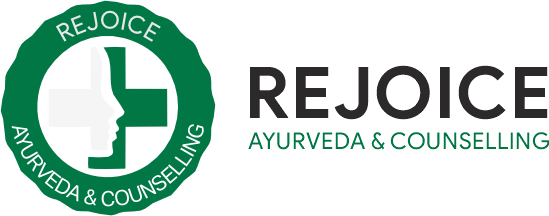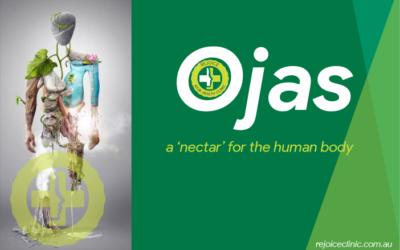Migraine/Headache
Ayurveda Clinic in Melbourne, Truganina
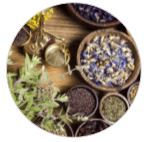
Ayurveda Melbourne
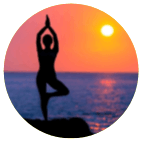
Counselling

Wellness Program
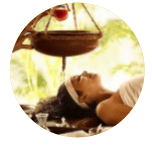
Ayurveda Treatment

Alternative Medicine
Ardhavabhedaka (Migraine)
Ardha = half side of the head
Avabhedaka = breaking pain/ splitting/ penetrating / bursting
Headache in which there is bursting pain on one half of the head is called ardhavabhedaka. Migraine also known as ‘Hemi-crania’. Ardhavabhedaka (Migraine) is one among the 11 types of Shirorogas (head diseases) described in Ayurvedic classical text books. It is a type of headache where pain is specially localised to one half of the head. It can be correlated with migraine based on the similarity in aetiology, pathology, symptoms and treatment principles and it’s the most common problem people seek medical attention.
What are the Causes of Ardhavabhedak (Migraine)
Ardhavabhedaka headache is caused by simultaneous vitiation of all three doshas in the body.
- Highly consumption of dry foods and excessive food
- Adhyasana- Eating second meal without digestion of previous food.
- Exposure to breeze and fog /mist, hot and cold climates.
- Excessive watch tv, phone and laptops.
- Vega-dharna- Suppression of natural body urges and reflexes
- Excessive indulgence in sex activities, or watch porn videos
- Dhuma sevana- Smokeing and drinking excess alcohol.
- Excessive indulgence in physical activities / exercise
- Excessive exhaustion
- Presence of worms in the body
- Excessive swimming and water games.
- Excessive Sleeping, late night sleeping and not sleeping during night.
- Stress inducing factors can include:
1) Physical stress such as excessive fasting, exercises, exhaustion, improper body postures, injury/trauma etc
2) Psychological stress such as Jealousy, anger, anxiety/nervousness, excitement, confusion, grief, fear etc
3) Environmental stress like high altitudes and prolonged exposure to the sun or heat.
Pathogenesis
When Vata gets vitiated either individually or with vitiated kapha gets lodged in half portion of the head. The vata aggravated in any one side of the head on getting blocked by vitiated kapha causes headache. The episodes of headache occur once in 3, 5, 15 or 30 days. Migraines can last for hours to days, and the pain can be so severe that it interferes with your daily activities. For some people, a warning symptom known as a migraine occurs before or with the headache in four different phases. Ardhavabhedaka headache has two types according to dosha –
Vata ardhavabhedaka- Mainly caused by vitiated vata in the body
Vata and Kapha ardhavabhedaka- Mainly caused by vitiation of both vata and kapha dosha in the body.
Symptoms of Ardhavabhedaka
- Unbearable pain in half side of the head.
- Nausea, vomiting, photophobia, and phonophobia.
- These symptoms occur suddenly without any cause, as episodes once in 5-10-15 days.
- Dizziness, giddiness and sometimes loss of consciousness.
- Constipation, mood changes, food craving, stiff neck and thirst etc.
- Splitting and blasting type of severe pain.
- Pain as if injured by a sharp weapon or thunderbolt in the sides of the neck, eyebrow, temple, ear, eye and forehead of the afflicted half of the head.
- In severe cases blindness and deafness happened.
Treatment for Migraine/Headache (Ardhavabhedaka)
Ayurveda has very affective fast relieving, natural and without further side- affect permanent cure for Ardhavabhedaka (Migraine). It should be treated very carefully specially considering the vitiated dosha in the body, Advice to adopt healthy lifestyle, maintaining a regular sleep schedule, eating routine and working habits and avoiding migraine triggers after complete consultation. Migraine (Ardhavabhedaka) headaches can be prevented by following:
Panchkarma: Panchkarma is highly recommended including regular Nasya, Snehan by Abhyanga, Swedan, Shirodhara, Shiro-abhyanga, Padabhyanga, Lepa, Virechan, asthapan & anuvasan basti, vata & kaphahar dhoomarpan, on the forehead and full head.
Ayurvedic medicines: There are a number of affective natural herbs which used to balanced dosha and calming tension in nerves.
Regular daily routine: Everyday after wakeup drink warm glass of water without doing brush, elimination to empty bowels, tongue scrapping, teeth cleaning, oil pulling, self-abhyanga and nasya, doing meditation and deep breathing exercises etc.
Follow healthy eating routine: There are main 8 factors that affect the quality of food (nature, processing, combination, quantity, habitat, time, rules of intake, responsibility). The general guidelines for healthy eating include eating food in the right place, preparing food with loving hands in a loving way, saying Grace before meals, eating without distraction, eating a right quantity, chewing until it is an even consistency, making sure food is warm oily/moist. Food should not have opposite potencies. Drink only a small amount of fluids with meals and avoid cold drinks. Eat food with confidence and eat until 75% full of stomach. Don’t do over-eating at all. Always do little rest after eating food.
Right sleep pattern: It means you must sleep during night and wakeup before sunrise according to the rhythms of nature. It is suggested that go to bed at 10pm and wakeup 5am.
Self Massage: Everyday day before going to sleep do forehead massage with ayurveda oils like sesame oil, castor oil, coconut oil, mahanarayan oil, prasari oil, shadbindu oil, bhringraj oil and pinda taila etc.
Meditation and Yoga: Regular meditation and deep breathing exercises in fresh air.
Drink Ginger tea: Ginger tea helps in coping with the other symptoms of migraine like nausea. Ginger root is known to block prostiglandins, compounds that stimulate muscle contractions and cause a headache. You should have 2-4 grams of ginger daily to feel better.
Apply Paste on forehead: Make a paste with nutmeg or sandalwood powder, then massage on your forehead. This can help you reduce ache, keep calm & relaxed and promotes sleep.
Make your diet consistent: Eat three meals per day, at the same time each day.
Ghee (clarified butter):Eat mix one spoon of ghee with hot milk and drink it before sleeping everyday.
Hydrate: Drink plenty of water to keep hydrated.
Avoid food: Avoid cold, dry, Spicy, fried, bitter and astringent foods and light foods like crackers and dry cereal. Avoid coffee and caffeine.
